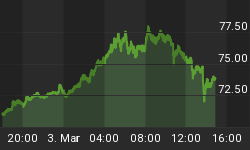In a 367-137 vote with two absent and seven abstentions, Brazil's lower house of Congress voted to impeach President Dilma Rousseff.
342 vote were needed. To reach that total, members of her own party had to abandon Ms. Rousseff.
Rousseff and high level officials in her administration are accused of massive corruption and bribes involving state-owned oil company Petrobras.
Corruption, no matter how blatant, is typically overlooked in good economic times. However, Rousseff presides over a Brazilian economy that is in its worst recession in over a century.
What's Next?
For more details let's turn to the Financial Times report Brazil Congress Votes to Impeach Rousseff.
Pro-impeachment politicians erupted into cheers and patriotic songs when the vote tally reached 342 in favour of the motion. The decision threatens to bring an abrupt end to 13 years of Ms Rousseff`s socialist Workers' party (PT) rule and allow her vice-president Michel Temer to form a new government.
The decision by congress to pass the impeachment process after a marathon three-day session of speeches and behind-the-scenes politicking also threatens to increase political risk in Brazil.
The lower house of congress must now pass the impeachment process to the senate, which is expected by this Friday to install a special commission.
The commission will have 10 days to submit its own report on the proposal, which will be put to a vote in the senate around May 11. If the senate votes by a simple majority of its 81 members to accept the motion, the formal impeachment trial will begin.
During this process Ms Rousseff will be suspended for up to six months and Mr Temer will take over as acting president.
If two-thirds of the senate's 81 members vote to impeach her in a session expected by the opposition to be held in late June, Mr Temer will lead the country until the next elections in 2018.
The Petrobras investigation will also continue, with big construction companies involved in the scandal believed to be negotiating new plea bargains that may implicate further members of Mr Temer's PMDB party who are already accused of corruption.
Brazil Stock Market

Brazilian Real

In early 2012, Guido Mantega, Brazil's finance minister declared New Currency War on US and Europe.
Mantega was the first high level official to use the controversial term "currency war". In 2010, Mantega said the government would not "sit by passively" as developed nations continue to pursue expansionary monetary policies at the expense of Brazil.
On August 25, 2013, Mantega was not exactly pleased with his success in winning the war. At that time, Brazil Announced $60 Billion Currency Intervention Scheme to prop up the Real.
As you can see, that failed to work. Currency wars, once started progress to conclusion, no matter what officials want.
Where To?
Michel Temer, Rousseff's vice president is now acting president.
Unlike Rousseff whom is a member of the Socialist Workers' Party (PT), Temer is a member of the centrist Brazilian Democratic Movement Party (PMDB) party.
According to the Financial Times report, "Temer has promised to adopt more orthodox economic principles, including a balanced budget and removing structural impediments to Brazil's long-term fiscal health, such as the indexation of salaries, benefits and other payments to inflation."
If Temer delivers on that pledge, the Real has only one way to go in value following the massive slide since 2012 - up.
















